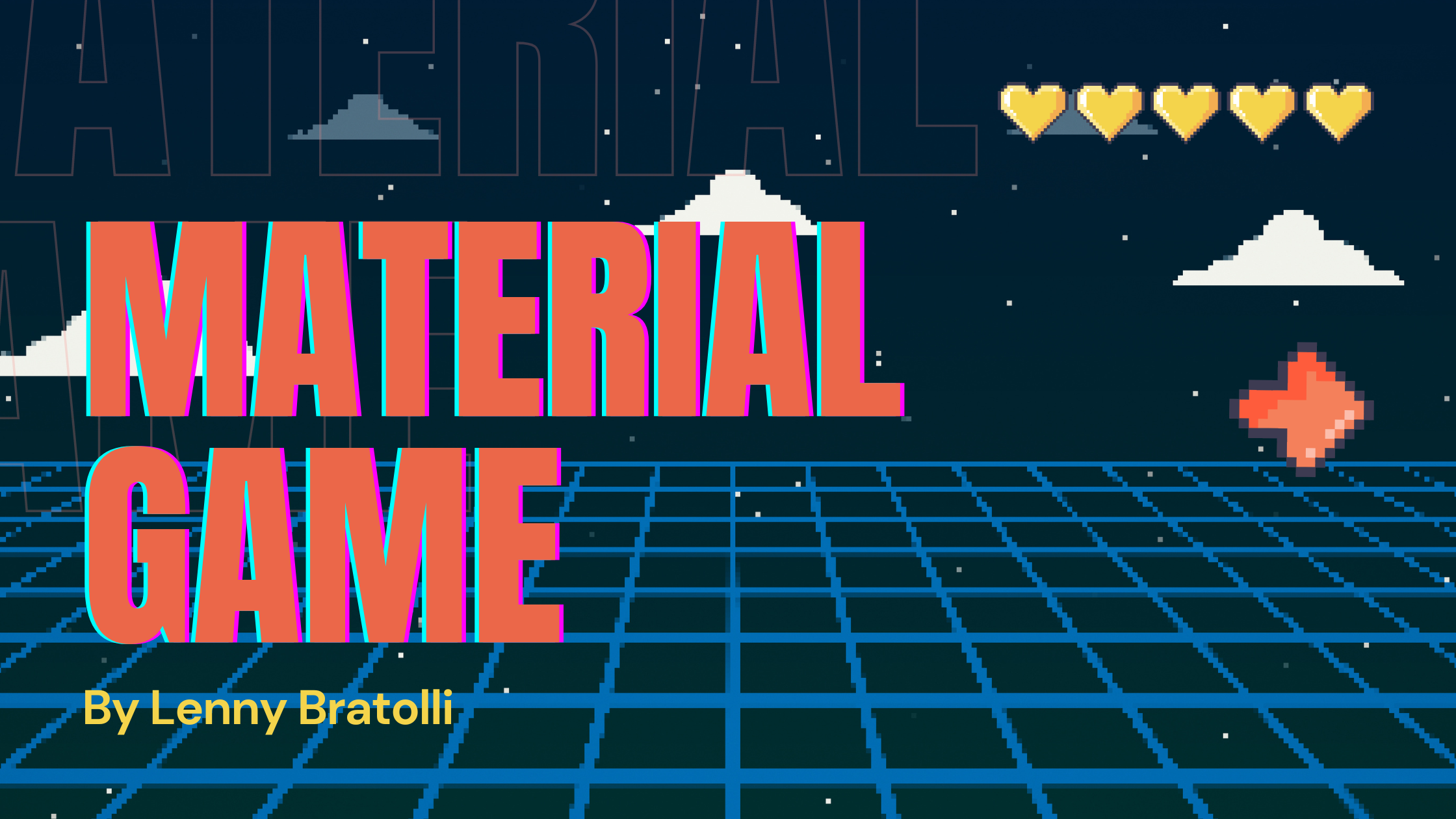Material Game
(Cover image by Natalie Hernandez)
One of my favorite pastimes, like many other 20-somethings, is to play video games. After a long day of working on school work, attending meetings for clubs and organizations, and helping around the house, I like to relax by escaping into numerous virtual worlds. It could be a chill playthrough of a puzzle game, a gripping journey through the elaborate world of an RPG, or an intense match in the hottest competitive multiplayer game. I could tell a lifetime of stories about the games that I have played, the people I shared them with, and impressions that they left me with. However, video games, like any other commercial and artistic form, are ever-changing. I think it's time to reflect on how one of my favorite hobbies has changed by looking at a peculiar aspect of them: the physical disc.
Like many pieces of digital media, video games were originally distributed commercially through physical hardware. You could commonly find games on plastic cartridges, CD-ROMs, or Blu-Ray discs, with each format usually being sold in a plastic box. Video games on physical items, which I will call from now on “physical games”, are not a revolutionary idea. Look at movies or music, which have gone from CD to online streaming within a decade or so.
For much of the video games industry’s history, publishers had to rely on their games being sold as physical products at real-world retail stores. If you wanted to get a video game, you had to find it in the wilds of your local stores; if a copy of it existed near you, that is. While it could be difficult to shift through all the stores at your disposal to find the game that you were looking for, it also brought its own sense of reward. Like finding a rare book at the library, or coming across a missing sock in the laundry. On top of having a new game to play, there was also a sense of satisfaction from actually having it in your hands. It’s a mundane accomplishment, but one that feels great after finding the rarest of games.
The feelings that come with acquiring a physical copy of a video game is why I care to talk about physical games today. The sense of satisfaction that comes from having a game that was actually yours. I’ve been playing games for a long time, and I’ve always prioritized getting physical copies whenever I can afford them. Even if I could download and play the digital version of a title on the same day, I find myself more than willing to wait to get a physical copy. There is something I find so enjoyable about getting a hold of a video game that I can actually see and feel. Maybe it's the plastic aesthetics of the case, the iridescent shimmer of the disc’s backside, or the infrequent but always welcomed surprise of a paper flier clipped to the inside.
But what I think I really like about it is the fact that I own it. Not in a consumerist sense, but more so a material sense. It is something that is in my possession, and from then, it becomes something that I feel a type of connection to. Like keeping a copy of your favorite book, even though you already know the story and don’t really need to keep it. Having the actual game and knowing that it is yours is what I find most appealing. It is something that, as long as you keep it, is yours.
However, in the world of gaming today, it is becoming rarer and rarer to have this sense of ownership. Like many other areas of entertainment, digital versions are king. With digital games, you don’t have to hold onto the disc, you can get titles much more easily by downloading them from a 24-hour store, and you might even be able to access titles that you normally wouldn’t find, such as older releases ported as digital-only purchases. Benefits like these are not limited to just video games, as technology has allowed everything that we consume to exist as a digital version. What we end up with is having to trade out physical copies for digital ones. While this isn’t an extreme idea, I think the commodity of accessing things through digital means takes some of the innate charm that they are supposed to come with.
With physical games, there is a sense of materiality that comes with them. With a physical video game, you have a copy that can be held in your hands, used whenever you like, and stays in your collection for as long as you like. With digital games, they’re tied to an account that you need to manage separately, rely on an internet connection to access, and fail to provide a real sense of ownership because the copy that you have is not really in your possession. At the end of the day, the stuff you buy is just licensed to you.
With the material nature of physical games, I feel that there is a greater sense of permanence. Not only because it's something that you own, but also because it acts as a sort of physical manifestation of effort put into. Remember, games are not created out of nothing like an anomaly. A single title can be made by a hundred person-strong team, where each member has committed thousands of hours to their duties. Often these people only receive recognition in the credit scroll. Physical games then become a record of those people’s talent, because after all of the hard work they have put in, there exists something that developers and their fans can have pride in. I would even say that physical games are a physical representation of all the love that not only goes into making games, but also enjoying them. Each disc and cartridge acts as a monument for this beloved pastime. A monument that is unfazed by the limitations of a digital existence and can be preserved through the hands that care for it. A monument of passion and creativity.
The reason that I care about games and their physical forms is as simple as the commodity that they are. Yes, a physical game is still a game. But because of its materiality, I think it is worth so much more.

